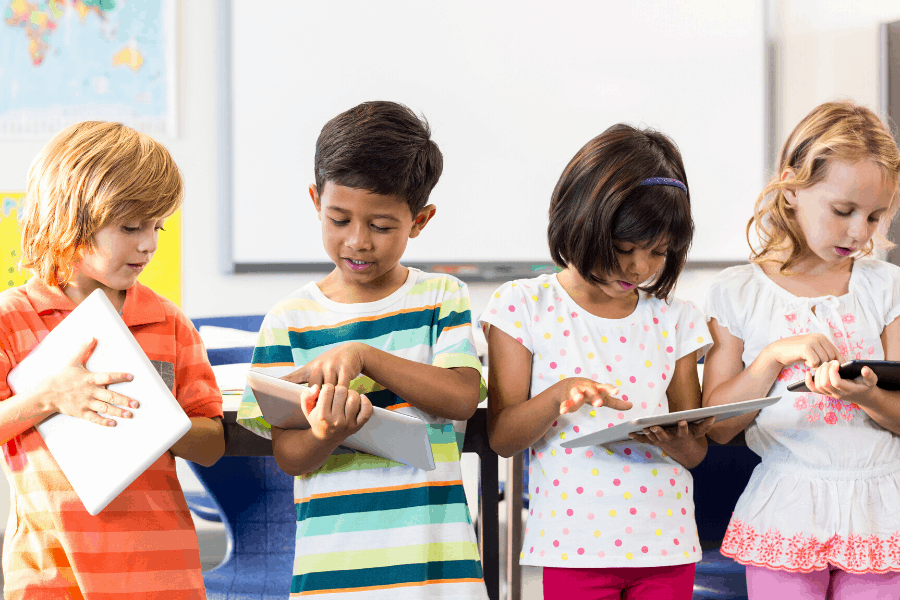After years of working with digital development in schools, I have seen great changes, and received a lot of feedback, both from students and teachers about how digitalization is changing their everyday lives. When you introduce a digital tool into the classroom, something happens to the structure of the classroom. What is happening, and why?

Traditionally, the school has been a place where knowledge has been transferred from teacher to student, with varying degrees of success. It is usually the same students who speak up and conduct a dialogue with the teacher. Is it possible to change this and give the students greater responsibility for finding and presenting the information they find? This will give the student greater ownership and motivation for their learning and education. They must find the right sources themselves and think critically about what sources and websites they are looking for. Students must learn to argue for and against and compare several aspects of a case.
This creates a great commitment on the part of the students, where they work together, help one another and share with fellow students. The students’ digital skills are already well developed, often much better than the teacher’s, and many students experience mastery in a completely different way than before.
The teacher is often required to depart from the “normal” classroom structure, and dare to give students open assignments and greater freedom in how to explore and build understanding of concepts. The role of both student and teacher is changing. The question is how to facilitate for better understanding and greater learning outcomes for the students. It is central for the future of education that ehe teacher becomes more involved in the role of mentor and facilitator for the students, and that the students themselves become active producers of their own learning process.
Other benefits that come with digitalization are the opportunities for interdisciplinary tasks that facilitates deep learning. It also provides opportunities to easier adapt the teaching to the students’ needs, which is a great benefit for the teacher and special educators. Especially students who need custom assignments say that they feel more included as no one else sees that they are given other assignments, or need to leave the classroom.
Frode Solsvik, Director of Digital Learning in LearnLab



